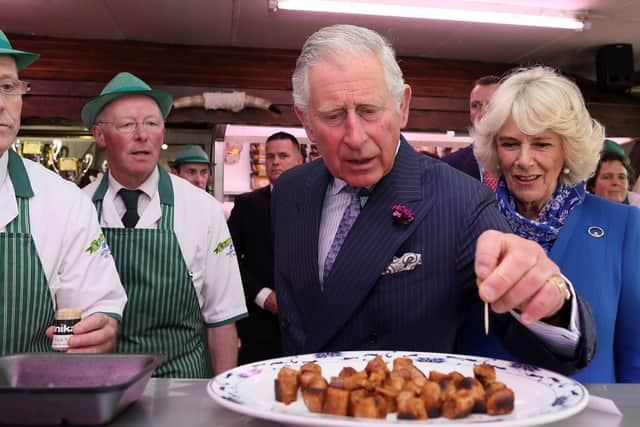Will King Charles give royal seal of approval to 'lab-grown' meat that could help save the planet? – Philip Lymbery
This article contains affiliate links. We may earn a small commission on items purchased through this article, but that does not affect our editorial judgement.
In the run-up to the festive break, I found myself in Windsor Castle surrounded by a gathering of minds focused on gamechangers. We were huddled in a grand hall known for being the place where Shakespeare first performed the Merry Wives of Windsor to Queen Elizabeth I in 1597.
Back then, the centrepiece of the festive feast might well have been wild boar, peacock, or swan. The now ubiquitous turkey had already made an appearance at royal banquets after King Henry VIII first dined on it. Today, farm-fresh turkey with all the trimmings remains a firm favourite for many. But for how much longer?
Advertisement
Hide AdAdvertisement
Hide AdPerhaps at Christmas sometime soon, King Charles III might become the first monarch to tuck into farm-free, lab-grown meat. Fanciful? Far-fetched? Well actually, a growing possibility. You see, meat is about to undergo a gamechanging moment.


For decades, meat has sparked a great debate centred on health issues and the welfare of farmed animals. More recently, there has been growing recognition of meat’s damaging role in the impending planetary crises of climate change and the loss of nature. In short, there is growing recognition that the world is eating too much meat. To get us back on track, scientifically based estimates suggest that meat production from animal rearing globally needs to halve.
Tastes just like meat
Inevitably, some ask why not just go vegan? A fair question. But that binary choice of meat or no meat is about to change. In America, food history was made last year when cultivated chicken, grown from stem cells in a bioreactor, was officially approved for commercial sale. For the first time ever, American diners could tuck into chicken produced without harming a single bird.
Instead, stem cells harmlessly drawn from donor animals were raised in a soup of nutrients in a bioreactor. Compared to its conventional counterpart, meat from stem cells promises to need much less land and emit far fewer greenhouse gases. It also tastes the same as meat. Mainly because it is real meat, only not from a slaughtered animal, offering a triple win for people, animals, and the planet. And what takes off in America often quickly goes around the world.
As the “renewable energy” equivalent of the food sector, stem-cell or cultivated meat could provide what many consumers want but without the downsides. Indistinguishable from animal meat, it could offer the same taste and convenience, eventually at a lower price. It offers the opportunity to reduce consumption of conventional meat without taking anything away.
Coming back to prospects for future royal banquets, I confess to not knowing whether King Charles would want to try it. What I do know is that he shares a concern for the health of the planet, that we both see organic and regenerative farming as key to transforming food systems for climate, nature, and health reasons. All I’m saying is that cultivated meat could form part of that sustainability puzzle. It could be a real gamechanger for saving the planet. And it could still provide that traditional Christmas dinner centrepiece, albeit with no animal harmed. Now, what’s not to like?
Philip Lymbery is chief executive of Compassion in World Farming. His new book, co-edited with Michel Vandenbosch, is Cultivated Meat to Secure Our Future: Hope for Animals, Food Security, and the Environment
Comments
Want to join the conversation? Please or to comment on this article.
